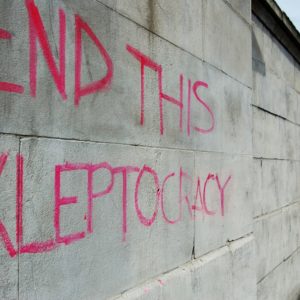
Hudson Institute Highlights Links Between Criminal Secrecy and Kleptocracy
Conservative Think Tank Scholars Note “Ending Criminal Secrecy Might become that Rarest of Political Beasts: a Truly Non-Partisan Issue.”
Scholars at the Hudson Institute recently announced in an article their support for action to curtail the abuse of anonymous shell companies. The conservative think tank’s Kleptocracy Initiative argues that the U.S. efforts around the world to stabilize governments and root out corruption are being undermined by an irrational contradiction where U.S. laws are at the same time providing a “safe haven to their dirty cash.”






